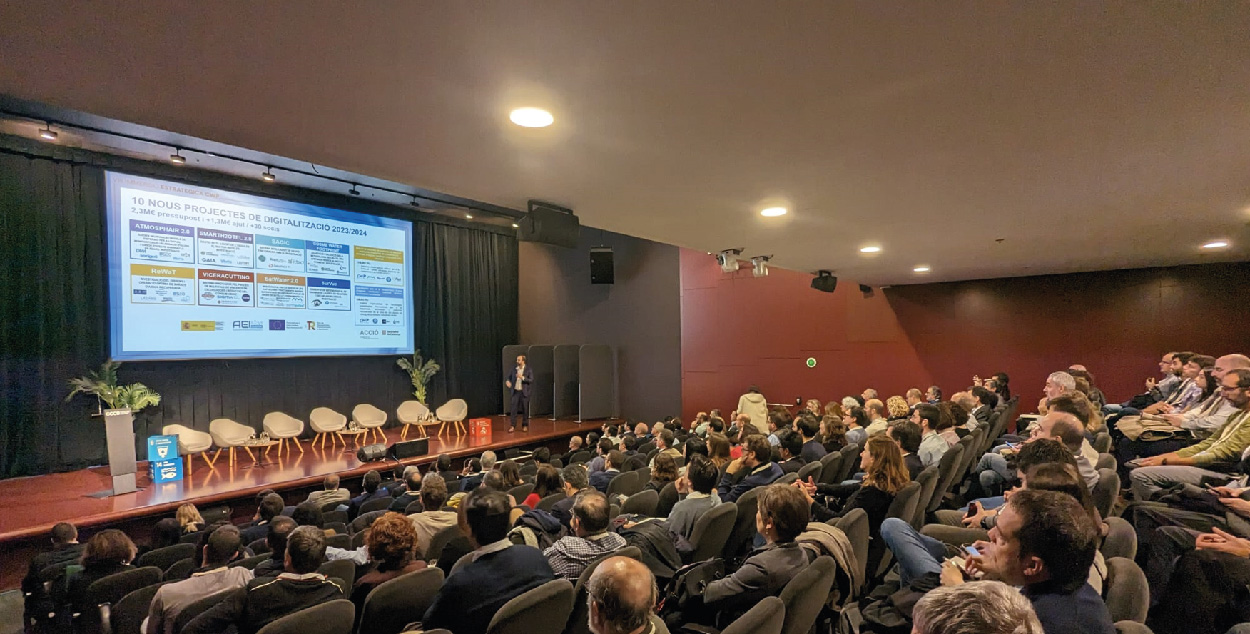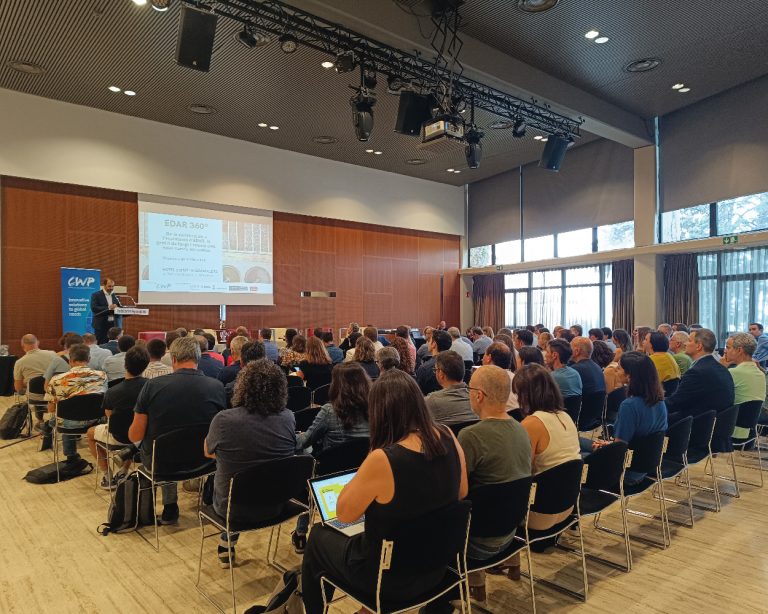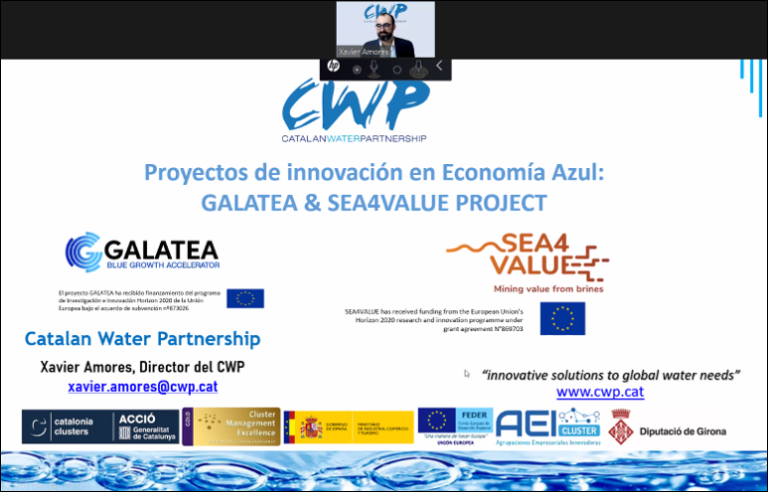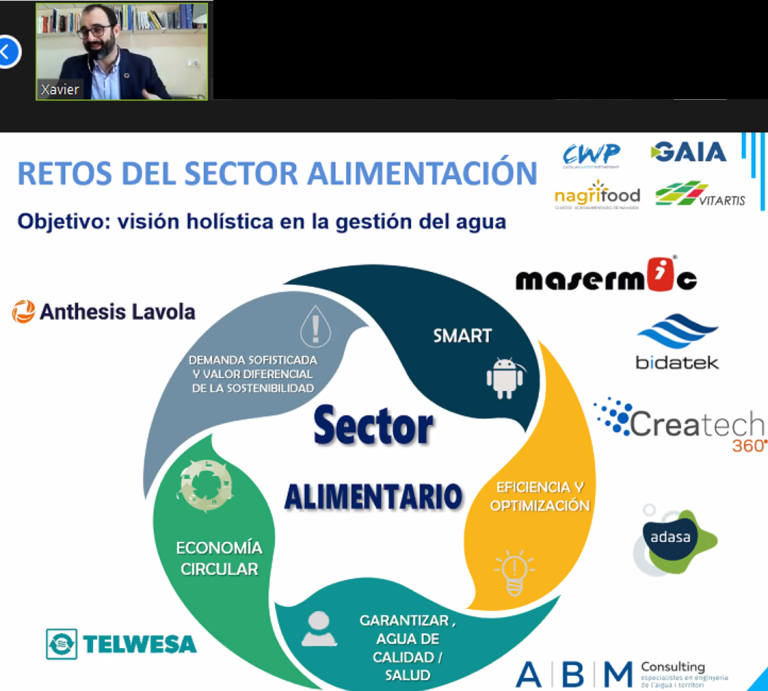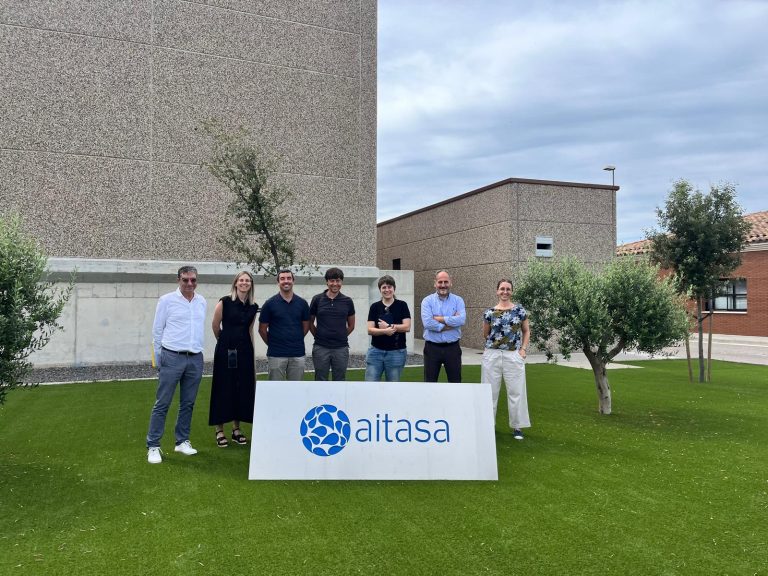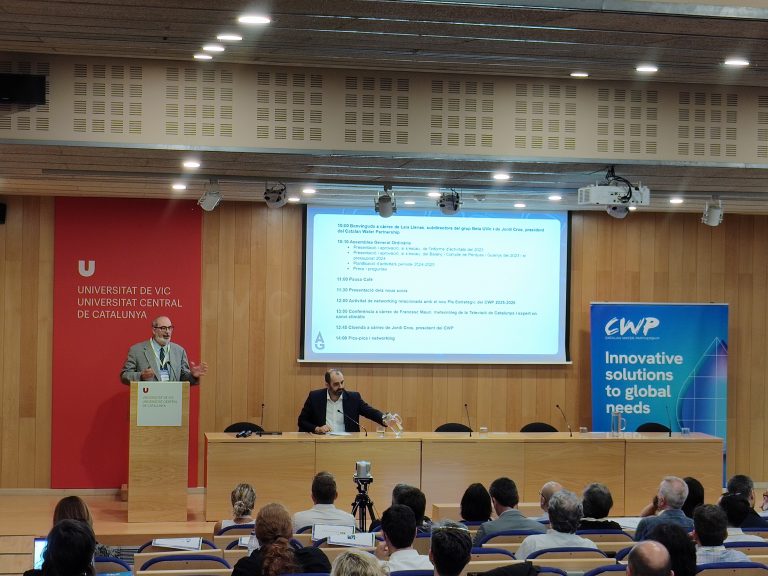The VIII Strategic Immersion of the Catalan Water Partnership brings together more than 160 people
- Drought management, good international practices around water management and the debate on talent have been the main focus of the day.
- The CWP takes stock of the more than 30 ongoing projects during the year and 25 events in which they have shared good practices in water management for all types of water users
Last November 30th, the VIII Strategic Immersion of the CWP took place, an event that was marked by the water emergency situation in Catalonia. The session began with the welcome of the president of the cluster, Jordi Cros, who highlighted that “Currently the cluster has 137 members, we are the second water association in Spain, and we are among the 10 most greats of the world“. Then, the need to promote joint strategies and collaboration between sectors to respond to the current challenges related to the availability of water was discussed by Samuel Reyes, director of the Catalan Water Agency (ACA), who emphasized “The special drought plan, which did not yet exist in 2008, guides us in managing the drought and guarantees supply with minimal impact on activities.“
Xavier Amores, director of the CWP, presented the initiatives carried out by the cluster during the drought, such as the more than 25 sectoral conferences that have been held and the more than 1,600 participants that have attended as well as those projects that they deal with the subject such as the Suggereix, Aquifer and Wat’savreuse projects. In terms of digitization, he presented the projects approved in the call for AEIs 2023 as well as ACCIÓ’s two IRC projects which in total add up to €2.3M in budget, €1.3M in aid and 30 participating partners. He also spoke about the PERTE digitalization of the water cycle and its two calls for proposals, one that has already announced the grants obtained and the other that will end on December 13. In this sense, the CWP has promoted and is promoting the Catalog of Digital Solutions of the CWP Partners.
Sarai Sarroca, director of the Meteorological Service of Catalonia, delved into the issues of weather forecasting to deal with the drought with a presentation in which she emphasized that “The current drought is not only very persistent, but has a negative trend, and there is no episode of rain that makes it easier for the reservoirs to recover with significant amounts” she also remarked that “We are experiencing the worst meteorological drought since 1916 due to its perseverance and intensity. We had never had a drought that affected 50% of the country with this intensity and territorial impact“.
In the discussion table proposed by the event under the name “International experiences in advanced water ecosystems” we could hear the experience of different professionals in different countries: England, Japan, California, South Africa or Australia. During the conversation, moderated by Ester Vilanova, responsible for digital solutions at Amphos21, different points of view and solutions to deal with periods of drought in these areas were presented. Thus, Josep Sellés from Adasa Sistemas commented on Australia “The strong investment in the modernization of irrigation water which represents more than 75% of water expenditure throughout Australia” and also explained that ” There are three markets for buying and selling water: the population, agriculture and industry and the environment”. Regarding the country itself and from a non-business point of view, but from a scientific research point of view, Maite Pijuan of ICRA: “In 2005 Australia implemented measures to deal with the drought: by running a socially active campaign and with the Water Grid, a water network that connected the swamps of the region, treatment plants, a desalination plant and three sewage treatment plants that, through a pumping system, made it possible to cover all the swamps”. As for California, Marc Teixidó of the IDAEA-Csic research center praised this country for being “an example of obtaining water through diversification: conservation and awareness of the population, water regenerated by irrigation, desalination and the adaptation of rainwater as an aquifer recharge system.” From Japan, Jordi Verdés from Kurita referred to the fact that “In Japan, industry is not a negative part of society but rather part of it and projects are worked on in cooperation to develop technologies. Catalonia is seen as a power in terms of water, as there is a technological and human level to be so“. Manel Salvadó from INFOSA explained his experience in South Africa, where he said that “In South Africa until the drought period, not much was done, but at that time it was dealt with through of a very effective persuasion campaign, but unfortunately when the rains came the plans that had been made fell into oblivion“. Finally, from England, Antoni Ventura from Aigües de Manresa, explained how water is managed in the country “The regulatory system implemented in England and Wales intervenes directly with companies, validates the plans investments, approves rates, rewards or punishes companies based on their performances”.
After talking about the water sector from the perspective of different experts, Oriol Montanyà, deputy director of the UPF Barcelona School of Management and columnist for La Vanguardia, spoke to us about the importance of talent with the presentation “Organizational keys to facilitate the development of talent“. An important point to emphasize in his presentation is “that if you offer young people the conditions we offered to the two previous generations, they will stay: decent salary, career plan, good hours, good treatment and internal promotion“.
The day ended with the conclusion given by Jordi Aguilera, vice-president of the CWP: “We talked about the present and the future, about strategies and collaborations, about problems and solutions. Keys to help us manage this scarce natural resource today. The water problem is everyone’s problem“. The event was a great success where different professionals from the sector were able to meet to share knowledge, create new synergies and talk about the current situation in the water sector.
